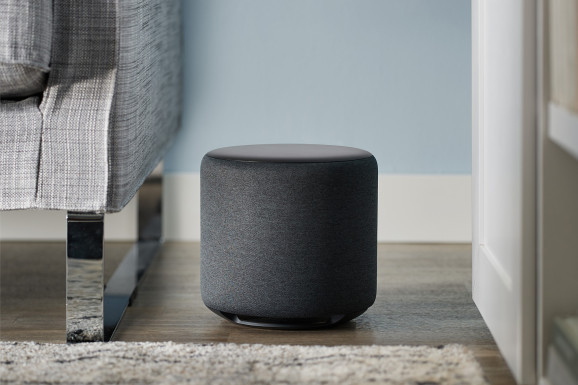Watch all the Transform 2020 sessions on-demand here.
Alexa’s getting a bit smarter, courtesy of Wolfram Alpha. Amazon today announced that its cross-platform assistant will integrate with Wolfram Research’s computational knowledge engine to answer math- and science-related questions.
“We rolled out an Alexa Q&A integration with Wolfram Alpha to U.S. customers, which expands Alexa’s capabilities to answer more questions related to mathematics, science, astronomy, engineering, geography, history, and more,” an Amazon spokesperson told VentureBeat. “Information curated by Wolfram Alpha has rolled out to select customers and will continue to roll out over the coming weeks and months.”
When it arrives on Alexa-enabled smart speakers and displays, you’ll be able to ask questions like “Alexa, what is the billionth prime number?” and “Alexa, how high do swans fly?”
Here are a few additional queries Wolfram Alpha will step in to handle:
June 5th: The AI Audit in NYC
Join us next week in NYC to engage with top executive leaders, delving into strategies for auditing AI models to ensure fairness, optimal performance, and ethical compliance across diverse organizations. Secure your attendance for this exclusive invite-only event.
- Alexa, what is x to the power of three plus x plus five where x is equal to seven?
- Alexa, how fast is the wind blowing right now?
- Alexa, how many sheets of paper will fit in a binder?
- Alexa, how long until the moon rises?
Wolfram Alpha, which launched in May 2009, is based on Wolfram Research’s flagship platform Wolfram Mathematica, and pulls in data from a bevy of third-party sources such as the CIA’s The World Factbook, the United States Geological Survey, Chambers Biographical Dictionary, Dow Jones, the Catalogue of Life, CrunchBase, Best Buy, the FAA, Facebook accounts, and more.
Amazon has made a concerted effort this year to supply Alexa with new data sources, following analyses showing that it lags behind other intelligent assistants in its ability to answer questions. In an experiment conducted by Loup Ventures this month, Google Assistant was able to answer 88 percent of 800 questions correctly versus Apple’s Siri at 75 percent, Alexa at 73 percent, and Cortana at 63 percent. (Alexa, notably, showed an improvement of 11.6 percentage points from a July test.)
This summer, Amazon began sourcing hours of operation, descriptions, and addresses from Yext, a digital knowledge management platform that counts Taco Bell, Arby’s, Marriott, and Rite Aid among its clients. December saw the launch of Alexa Answers, an invitation-only program that allows people to submit answers to questions that, if approved, are distributed to the millions of Alexa users around the world. And in August, Amazon launched Answer Updates, a feature that pings users who ask a question the assistant is unable to answer with a notification when Alexa “learns” the answer.
Meanwhile, follow-up questions — an attempt to make exchanges with Alexa more conversational — were announced earlier this year.
“Our vision has always been that Alexa will be able to answer all questions in all forms, from anywhere in the world,” Bill Barton, vice president of Amazon’s Alexa division, wrote in a blog post in December.


